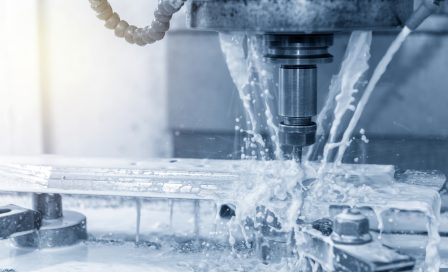
Search and selection of CNC lathe operators
The search and selection of CNC lathe operators is quite complex and requires to identify profiles with specialized skills.
This role can grow in a company organization, with the possibility of holding various positions up to that of head of department, passing from the shift manager.
The CNC lathe operator: who is he and what does he do?
The answer in brief could be this: he is the lathe operator who works with the computerized numerical control (CNC). It is the technological evolution of the manual lathe.
The manual lathe operator works a piece of iron, wood, stone or other material, removing excess material with a rotating mechanism that makes the “raw” piece turn by impacting on a tool. The workpiece is fixed to a “spindle” to be machined in the best possible way.
The CNC lathe operator uses a computerized numerical control lathe and processes a part in automatic mode, according to the indications that the operator has inserted in the software (programming on board the machine). They are specialists who find employment in industry and particularly in the mechanical sector, where the role and skills of the CNC lathe operator are highly appreciated.
Computerized numerical control technology is used in many production sectors and allows to work metal, wood and a myriad of other materials and is used both in industrial mass production and in niche artisan production.
A lathe operator may be able to use computerized lathe models and/or master the essence of the manual lathe.
The role of the CNC lathe operator
The lathe operator is a highly specialized employee, able to obtain from a raw piece a detail and a finished product, according to the characteristics foreseen by the technical project.
He is able to perform the required machining operations, turning the parts, making all the necessary adjustments to the lathe functionality, modifying the speed, the alignment and the optimal use of the accessories.
Automation and technological development have made giant strides, but its work is not reduced to the mere use of the equipment, it still provides a great manual skill that is always taken into consideration every time a new lathe operator is selected.
The lathe operator using CNC lathes is able to program the machines using the appropriate language, which depends on the machine tool manufacturer. They must therefore be able to read the mechanical drawing and prepare the machine tools for specific requirements.
The part is always subject to careful evaluation, the lathe operator must finish the finished work, removing some inaccuracies and checking the quality of the manufactured product, checking if the final output corresponds to the lines and design characteristics. The evaluation action, also presupposes a continuous connection with the project and production managers, the lathe operator must report any problems encountered in order to improve the future implementation process.
The lathe operator is also responsible for the management of consumables, lathe maintenance and cleaning.
The skills required in the search and selection of CNC lathe operators
In the search and selection of CNC lathe operators, the versatility of the professional profile must be taken into great consideration. There are various types of CNC lathes and the desire to keep up to date is fundamental to keep pace with technological evolution.
It is always recommended, for both professional and cultural reasons, to have attended a secondary school with a technical or professional specialization in mechanics.
A necessary requirement for the profile is the predisposition to update, a lathe operator must continuously train in order to know the news of the sector.
A good mechanical training is a good entry prerequisite to give job opportunities also outside the national borders. Technical and professional skills are acquired mainly in the field and with experience.
The experienced lathe operator must be familiar with all existing types of turning, master the available tools and variables in order to use them in the best possible way and according to the technical requirements of the machining process.
Knowledge of specific programming languages is fundamental in the use of CNC lathes; the worker must be able to use electronic and technological devices by programming on board the machine, modifying and varying the indications.
In the search and selection of CNC lathe profiles the following skills and competences are required at a glance:
- to be able to read the mechanical drawing and develop the programs on board the machine;
- several years of experience in the use of manual and CNC lathes;
- mechanical and computer science of industrial type;
- in craftsmanship, having good manual skills;
- in the propensity for precision work and attention to detail;
- in the autonomous management of the work according to the design indications.
The role of the CNC lathe operator in the labour market
A lathe operator can also learn to use other types of machine tools, such as grinding machines, milling machines, etc. This versatility increases the prospect of professional and economic progression.
The professional profile is very much in demand for its many uses in various areas. The manual skill and craftsmanship of Made in Italy is also guaranteed by a tradition of lathe operator who have been able to combine the use of the old devices with the new numerical control machines.
The work is not lacking for a skilled lathe operator and the prospects of employment are always just around the corner. Small mechanical workshops or large companies use the lathe for all types of production. Every area or production area requires this specialised professional figure. In the research and selection of CNC lathe operators, in addition to professionalism and technical expertise, great flexibility and the ability to work in a team are required.
How to search and select CNC lathe operators
It is usually a very difficult task for companies, but also for recruitment companies, to look for good lathe operators. In order to overcome the obvious difficulties, which arise from the scarcity of profiles compared to the demand of the labour market, we have developed a database of technical profiles and an innovative and cutting-edge research and selection method.





